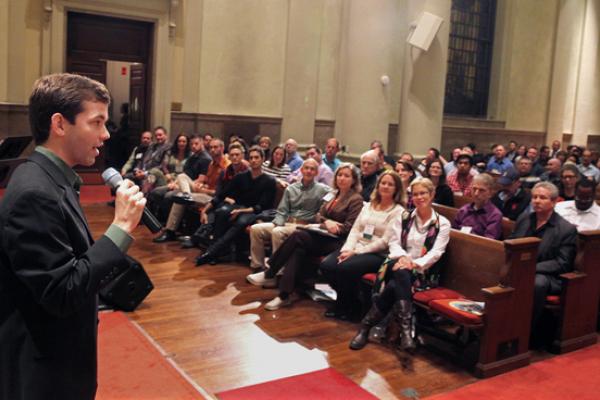It used to be that defining an “evangelical” was pretty straightforward: some version of a “born-again” experience, a deep appreciation for the Bible as the written Word of God and a conviction to spread salvation to the masses.
Opposing homosexuality wasn’t part of that holy trinity, but for most evangelicals, it was more or less a given that all sexuality outside of man-woman marriage is sinful. Not so much anymore.
Growing cultural acceptance of homosexuality is leading many Christians to reconsider their historic opposition. As intractable as the debate itself can be, American evangelicals nonetheless are experiencing lively conflicts over maintaining boundaries. What can you believe about gays and still call yourself an evangelical? And who gets to decide?
In October, the Vatican’s Synod on the Family and a major conference of establishment evangelicals in Nashville both featured softer rhetoric on gays and lesbians while reaffirming the view that homosexuality is morally disordered.
Last week in Washington, however, a gay evangelical activist laid out a biblical argument for an affirming view.
Matthew Vines was raised in a conservative Presbyterian congregation in Wichita, Kan. Realizing and accepting that he was gay, Vines neither abandoned religion nor sought out a more affirming church. Instead, he delved deeply into the Bible and Christian teaching. He came away with the conviction that biblical Christianity could affirm same-sex relationships.
Read the Full Article

